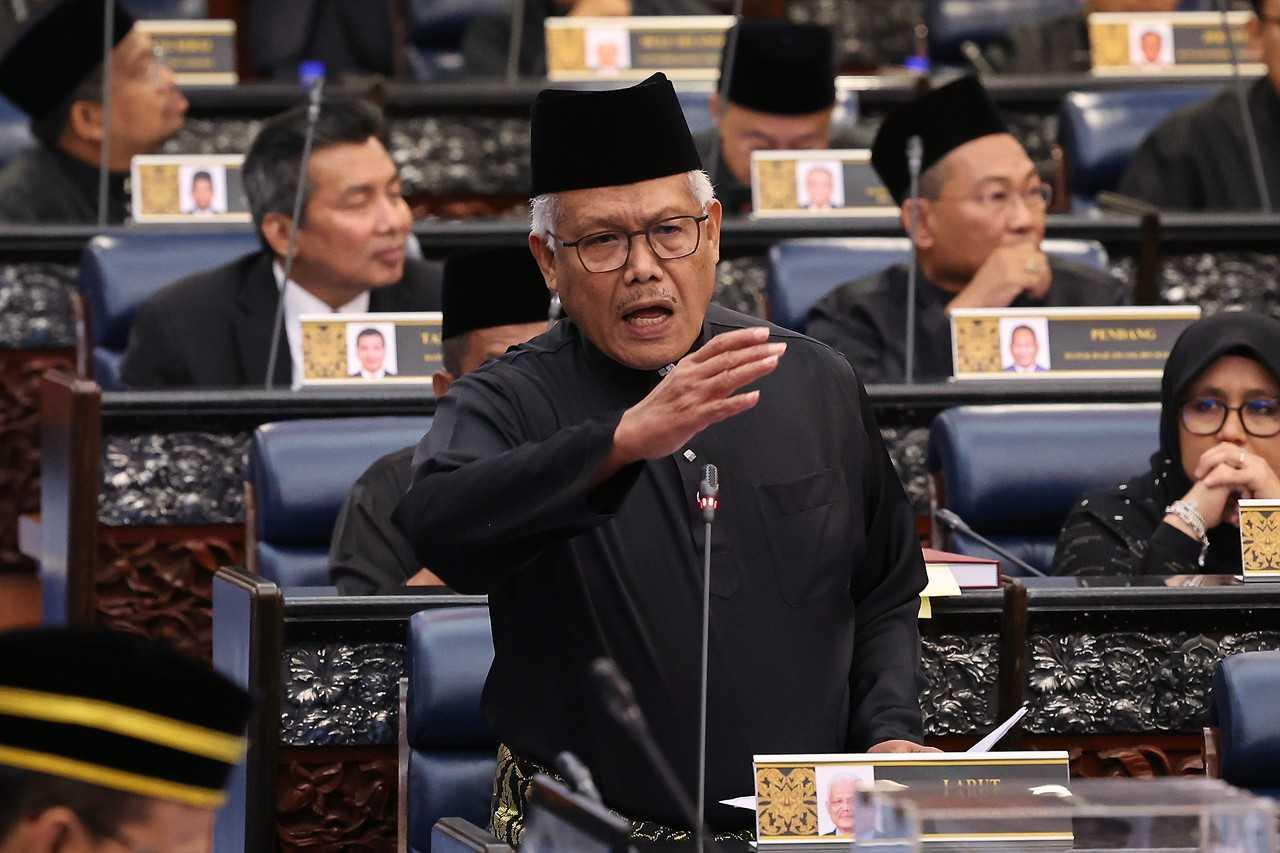Behind PN's choice of opposition chief
An analyst sees a strategy behind PN's decision to give the role to its secretary-general instead of a more prominent leader.
Just In
While the role of the opposition chief in Parliament is traditionally held by prominent coalition leaders of approximately equal status with the prime minister, an analyst says there is a reason for Perikatan Nasional's (PN) move to appoint Hamzah Zainudin to the position instead.
While Hamzah served as the home minister under both Muhyiddin Yassin and Ismail Sabri Yaakob, coalition-wise, he holds the relatively lower rank of secretary-general.
The break from the normal practice of naming a main opposition leader to helm the bloc in the Dewan Rakyat was pointed out by many on social media who said a better candidate would have been PAS president Abdul Hadi Awang, or Muhyiddin himself.
Some also questioned Hamzah's appointment given that he is a member of Bersatu while PAS as a party won far more seats at the recent general election.
But Anis Anwar Suhaimi, chief researcher at O2 Research Malaysia, said PN appeared to be focusing on strengthening its influence outside the four walls of Parliament.
Within the Dewan Rakyat, he said, the position of opposition leader could be given to an individual with enough experience to lead the coalition's MPs, and a character aggressive enough to provide checks and balances for the government bloc.
"Hamzah is one of the best options for this role," he added.
Jeniri Amir, a senior fellow at the National Professors Council, agreed.
Speaking to MalaysiaNow, he said the Larut MP had been appointed to lead PN's 74 MPs in Parliament due to his potential and ability.
"Perhaps PN is more confident in Hamzah's ability as secretary-general to act as its main spokesman," Jeniri said.
"And Hamzah's relationship with Pakatan Harapan is not very good," he added, citing Hamzah's maiden speech in the Dewan Rakyat at which he had attacked Anwar Ibrahim, challenging him to act over a report by an international media outlet labelling the prime minister as a "full-blown homosexual".
"In truth, he wanted to tarnish the prime minister's image," Jeniri said.
"There was a kind of revenge there, a violent anger that blew up in the Dewan Rakyat."
But he said that Hamzah's willingness to speak up in Parliament made him a better candidate for opposition leader than Muhyiddin or anyone else from PAS.
Anis meanwhile drew comparisons with what had happened in 2018, in the aftermath of the 14th general election (GE14).
While Najib Razak was the prime minister until Barisan Nasional's historic loss at GE14, he remained an ordinary member of Parliament and did not assume the role of opposition chief once the Dewan Rakyat reconvened.
The same was seen in 2020, when Dr Mahathir Mohamad resigned as prime minister as well as chairman of Bersatu and Anwar became the opposition leader.
"Muhyiddin also took an approach similar to the previous leaderships," Anis added, referring to the PN chairman who was instead named as the coalition's chief whip.
Subscribe to our newsletter
To be updated with all the latest news and analyses daily.
Most Read
No articles found.
